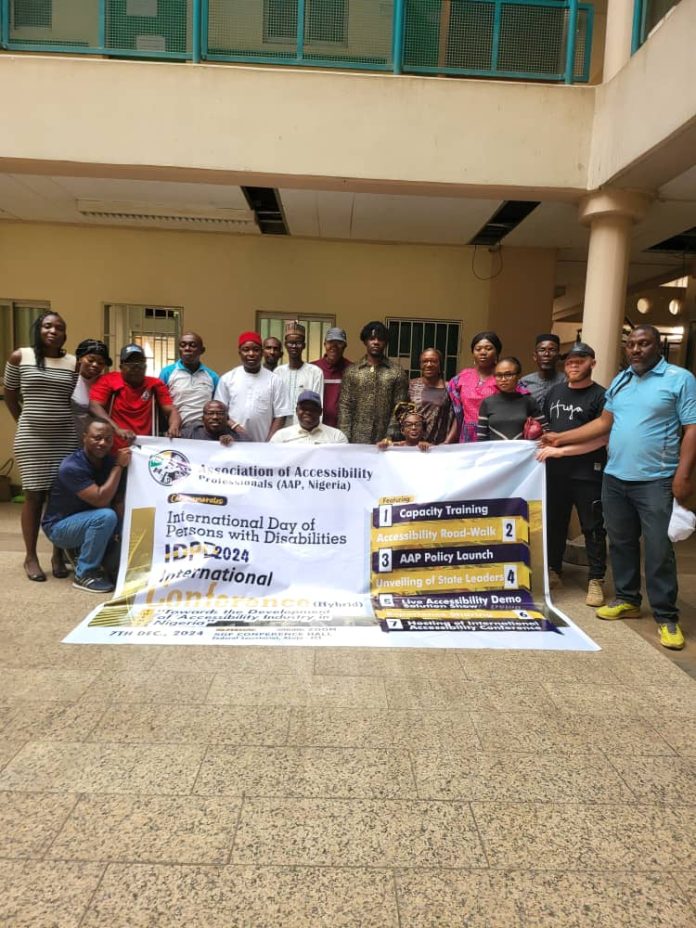On Saturday, December 7, 2024, the Association of Accessibility Professionals (AAP), Nigeria, marked the International Day for Persons with Disabilities (IDPD) with a remarkable online international conference aimed at championing accessibility and fostering inclusivity across Nigeria. With the theme, “Towards the Development of Accessibility Industry in Nigeria,” the event united seasoned experts, policymakers, and advocates from various sectors to discuss, deliberate, and advance the accessibility agenda in the country.
The conference provided a platform to deepen understanding, raise awareness, and celebrate milestones in accessibility while inspiring solutions for a more inclusive future. It also sought to build a network of stakeholders committed to accessibility compliance and integration in Nigeria and beyond.
Opening Remarks by AAP Chairman
Barrister Yusuf Iyodo, the Board Chairman and General Coordinator of AAP, Nigeria, delivered an inspiring opening address, emphasizing the organization’s pivotal role in advancing accessibility in the country. He described AAP as a national branch of a global movement committed to advocating for environments that accommodate the needs of individuals with disabilities.
He highlighted the organization’s objectives, including training and empowering professionals across diverse fields—architecture, engineering, law, and more—to design and implement accessibility-compliant structures and systems.
Barr. Iyodo also revealed AAP’s plans to conduct training programs, advocate for the full implementation of the Discrimination Against Persons with Disabilities (Prohibition) Act, 2018, and establish Nigeria as a leader in accessibility standards.
“Our mission is to provide accessibility solutions for the benefit of all, especially persons with disabilities,” Iyodo stated. He emphasized that the organization’s work spans advocacy, education, awareness campaigns, and collaborative projects to eliminate barriers that hinder the full participation of persons with disabilities.
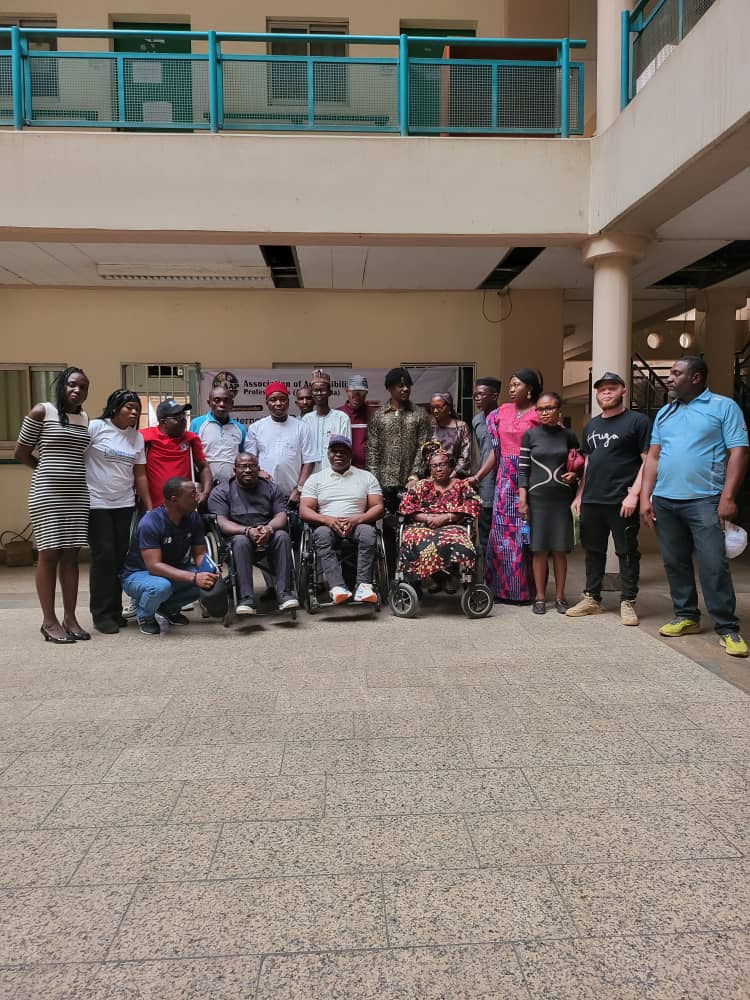
Government’s Commitment to Accessibility
The event featured an address by Hon. Dr. Bashiru Ayinla Dawodu, Chairman of the House of Representatives Committee on Disabilities. He commended AAP for its efforts and reaffirmed the government’s commitment to improving the lives of over 35 million persons with disabilities (PWDs) in Nigeria.
Dr. Dawodu noted the historic inclusion of sign language interpretation on the floor of the House of Representatives under the leadership of Hon. Tajudeen Abbas, signaling a growing commitment to accessibility in governance.
“The Disability Act is now a standing law in Nigeria,” Dr. Dawodu remarked. “However, implementation remains a critical challenge. This is where your association will play a vital role in finding solutions to accessibility issues in public and private spaces.”
He assured the audience of the legislature’s willingness to collaborate with AAP to achieve full accessibility compliance in line with the Act, including investigating public buildings for accessibility gaps.
President’s Office Reinforces Accessibility Agenda
Hon. Mohammed Abba Isa, Senior Special Assistant to President Bola Ahmed Tinubu on Special Needs and Equal Opportunities, delivered a powerful keynote address emphasizing the administration’s dedication to inclusivity.
He announced the establishment of a Presidential Task Force on Accessibility to enforce the National Disability Act. This initiative, approved by President Tinubu, will ensure that public infrastructure, transport systems, and MDAs adhere to accessibility standards.
“Accessibility is the precursor to inclusivity,” Hon. Abba Isa stated. “Without accessibility, persons with disabilities cannot gain access to the roundtable of decision-making. This administration is committed to removing barriers and creating a society where no one is left behind.”
He praised AAP’s efforts, expressing confidence in the organization’s ability to lead Nigeria toward a future where accessibility and inclusivity are guaranteed.
Global and Local Experts Drive Discussions
The conference featured distinguished speakers from across the globe, bringing diverse perspectives and expertise to the discussions:
- Friedrich Radi, a Digital Accessibility Consultant from Germany, explored the critical importance of accessibility in digital spaces.
- Diwesh Kumar Mishra, an Accessible Financing Advisor from India, shed light on accessibility development financing, emphasizing sustainable funding strategies.
- Ngozi Ugoji, an internationally certified project management professional, presented on best practices for developing Nigeria’s accessibility industry.
- Rasak Adekoya, a member of the International Association of Accessibility Professionals and a Staff At SightSavers, delved into agenda-setting for accessibility sector development.
- Barr. Daniel Onwe, a disability rights advocate, provided a legal and policy perspective on accessibility development in Nigeria.
- Lois Auta, Executive Director of CedarSeed Foundation, shared her personal experiences and practical insights on accessibility challenges and opportunities.
Key Takeaways and Recommendations
The conference culminated in rich and engaging discussions, with notable takeaways and actionable recommendations, including:
- Encouraging Organizations of Persons with Disabilities (OPDs) to lead by example by prioritizing accessibility in their operations.
- Expanding Nigeria’s accessibility standards to address broader issues beyond physical access, such as digital and service-based accessibility.
- Exploring litigation as a tool to enforce accessibility compliance.
- Advocating for innovative funding sources to implement accessibility features across sectors.
Participants left the event inspired and equipped to champion the accessibility movement in their communities.
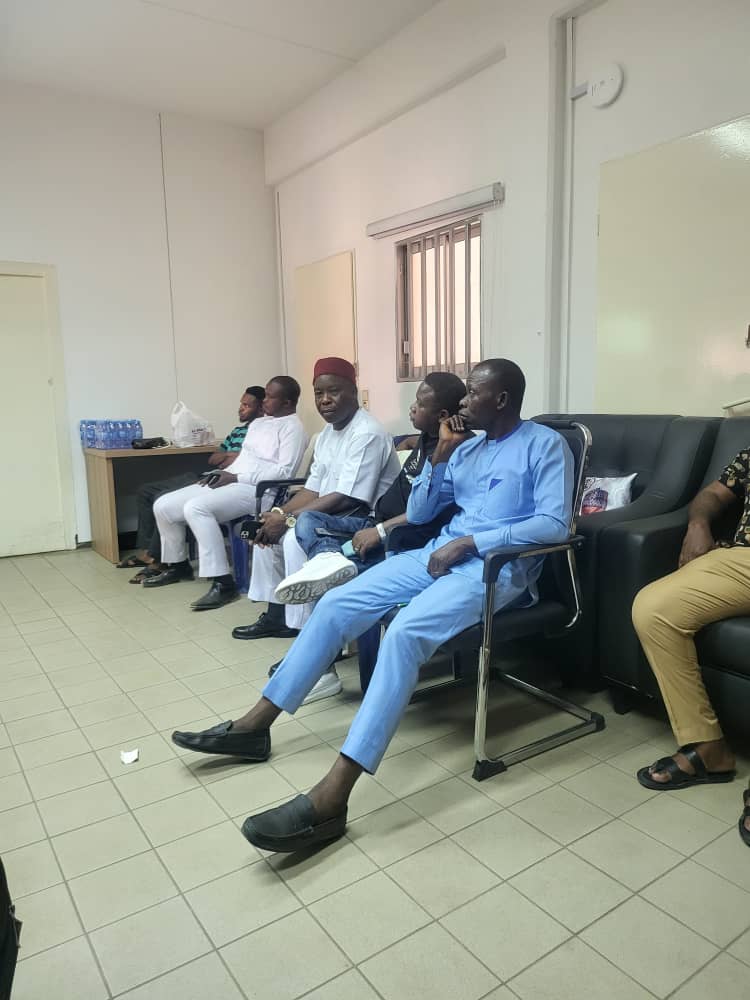
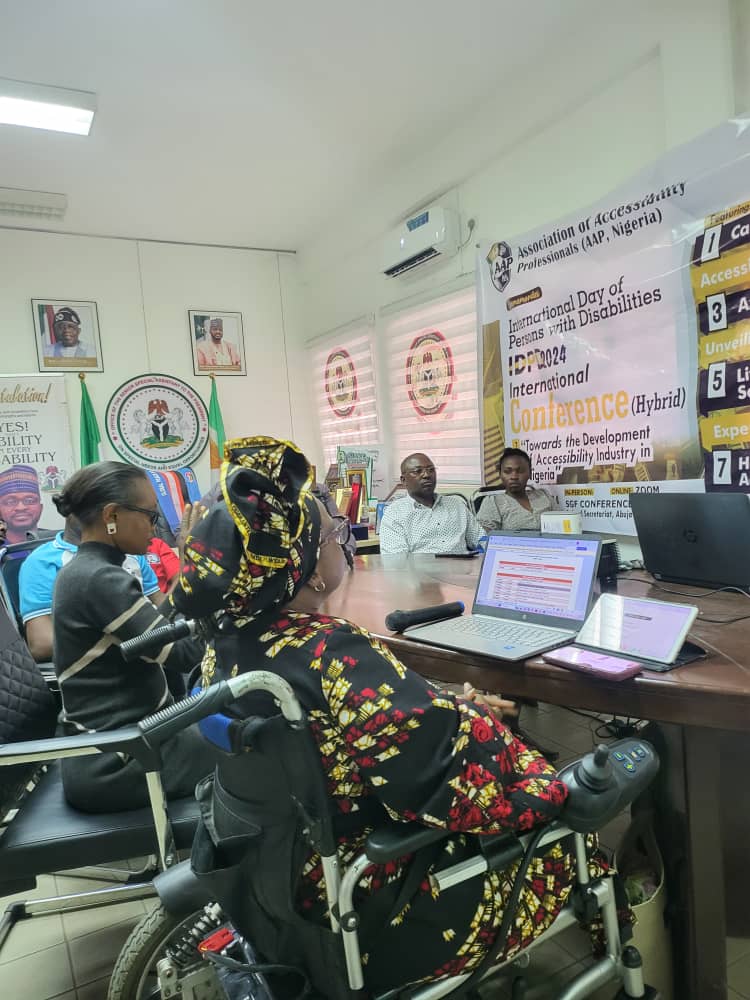
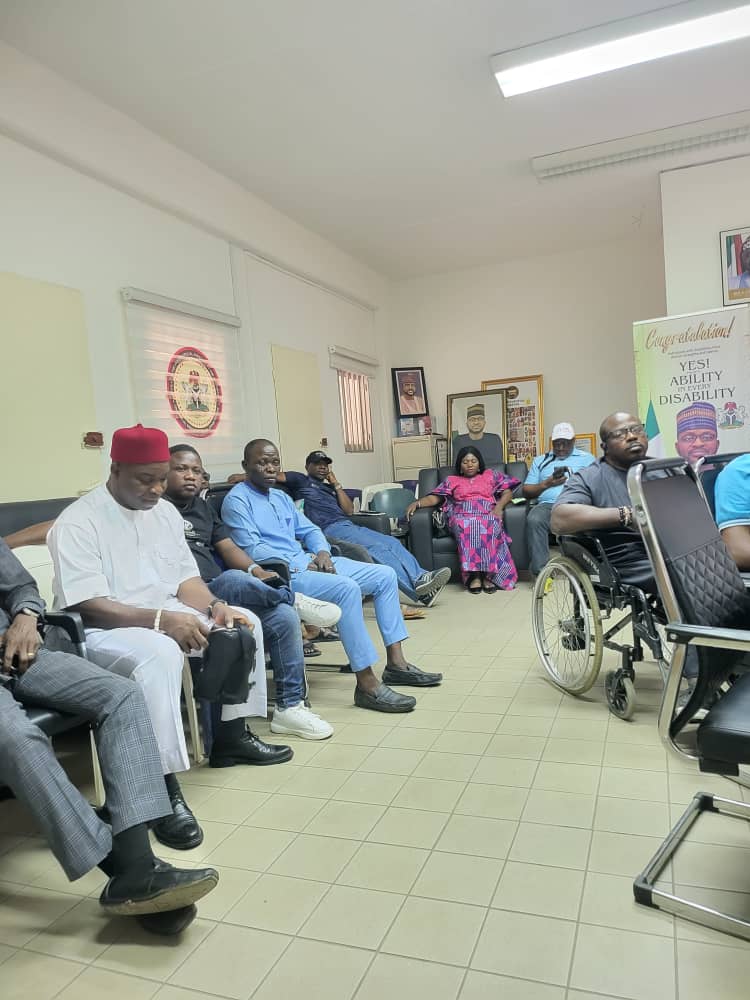
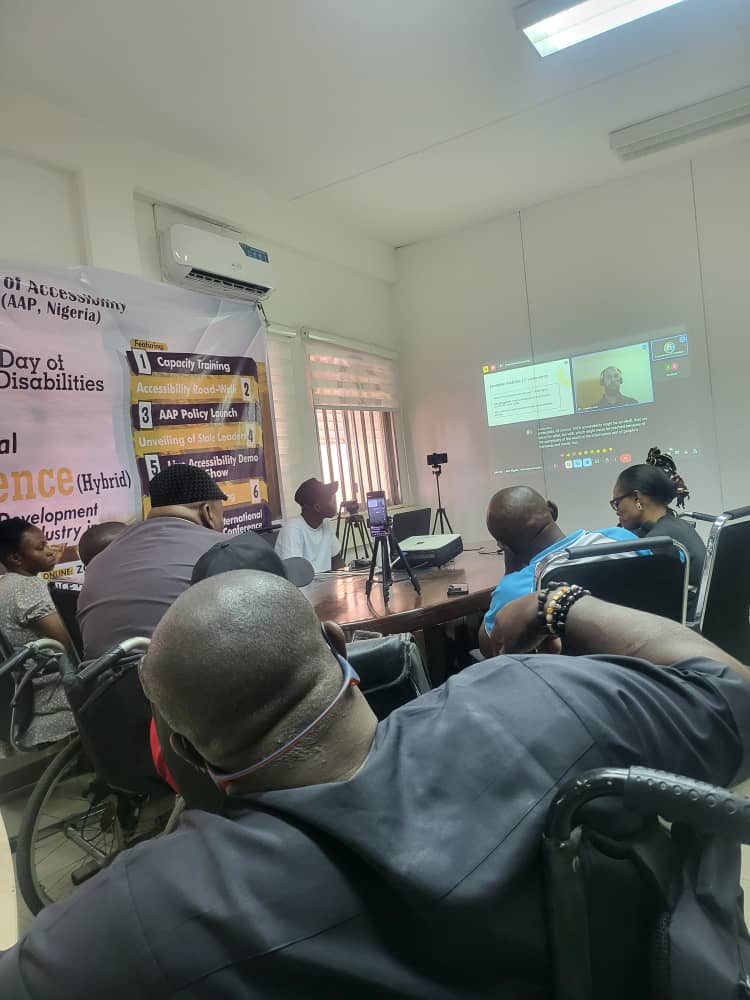
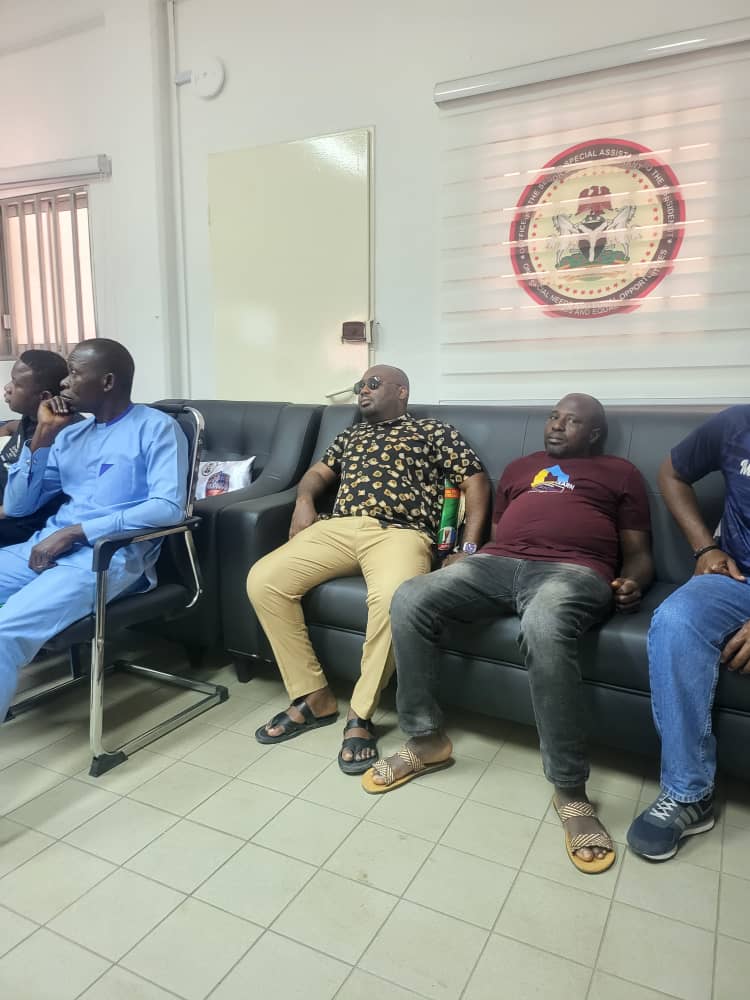
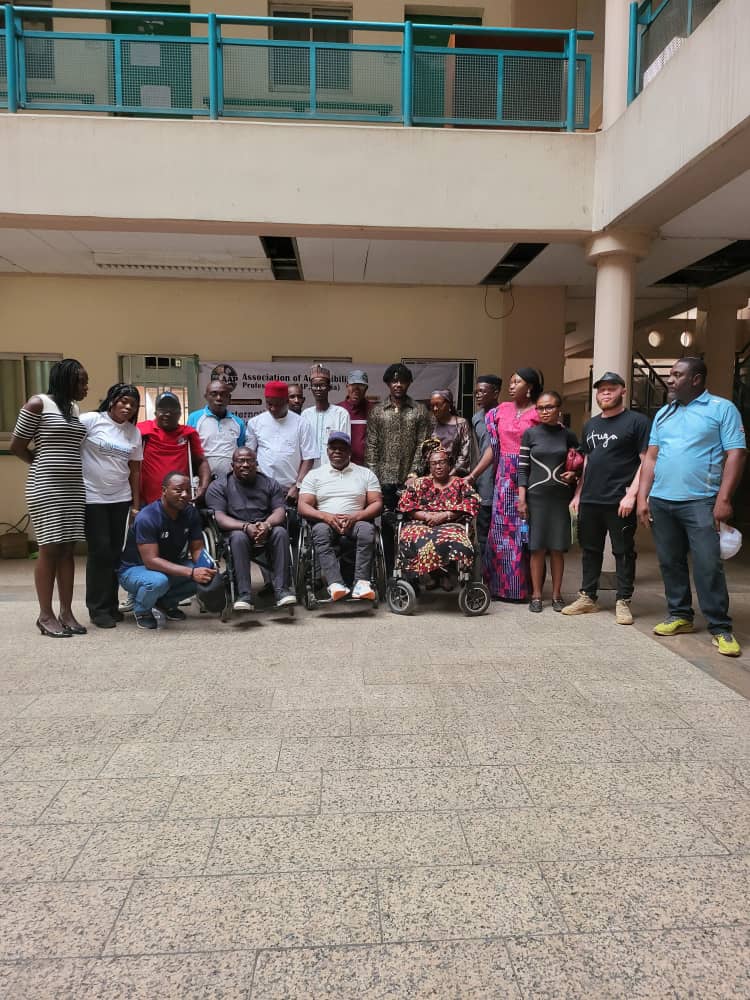
A Unified Vision for Accessibility
The International Day for Persons with Disabilities celebration by AAP underscored the urgent need for an inclusive society where accessibility is the norm, not the exception. As Nigeria takes bold steps toward implementing the National Disability Act, events like this serve as a catalyst for change, uniting stakeholders under a shared vision of equality and opportunity for all.
AAP’s commitment to fostering collaboration, influencing policy, and empowering professionals is a testament to the transformative power of accessibility advocacy. As Barr. Iyodo aptly stated, “Accessibility isn’t just about compliance—it’s about creating equal opportunities for all.”
The future of accessibility in Nigeria looks promising, with AAP at the forefront of this vital mission.

